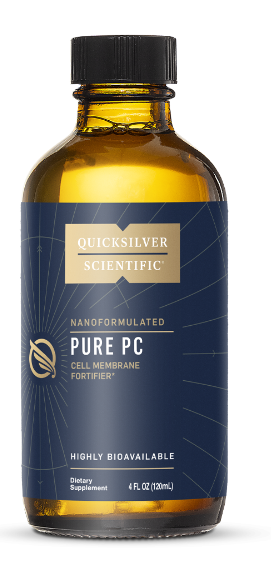Phosphatidyl Choline (PC) is the most predominant phospholipid building block of animal and plant cell membranes, and it’s an integral part of the structure of circulating lipoproteins. It is an integral component required for both membrane integrity and structure. Phosphatidyl Choline is a normal constituent of bile and facilitates fat emulsification, absorption, and transport. Metabolism of PC provides choline to the body, and while choline can be synthesized from methionine or serine, it is often considered an essential nutrient and must be obtained from the diet. Sufficient levels of Phosphatidyl Choline have been shown to support many biochemical pathways, enhance physiology, and restore critical functions—such as, liver detoxification of chemicals, heavy metals, and xenobiotics; fat metabolism, improved cholesterol levels, and reduced platelet aggregation risk; increased endurance for physical performance and improved post-exercise recovery. PC supplementation has demonstrated increased availability of the important neurotransmitter acetylcholine within the brain, leading to improved memory, cognition, and mood in disorders such asdementia, Alzheimer’s disease (2,3,4), and bipolar disorder. Other health-supporting mechanisms supported by PC include blood sugar regulation, cellular anti-inflammatory and regulatory messaging, lung surfactant health,protection of gastric mucosa from NSAID (5,6) use, and therapeutic potential for the treatment of Inflammatory Bowel Disease. PC is a powerful antioxidant and has been shown to have anti-aging benefits (7),in addition to improved joint mobility and reduced pain associated with rheumatoid arthritis. Choline is also a major source of methyl groups via its metabolite trimethylglycine (TMG), which is important for Phase II hepatic detoxification.



